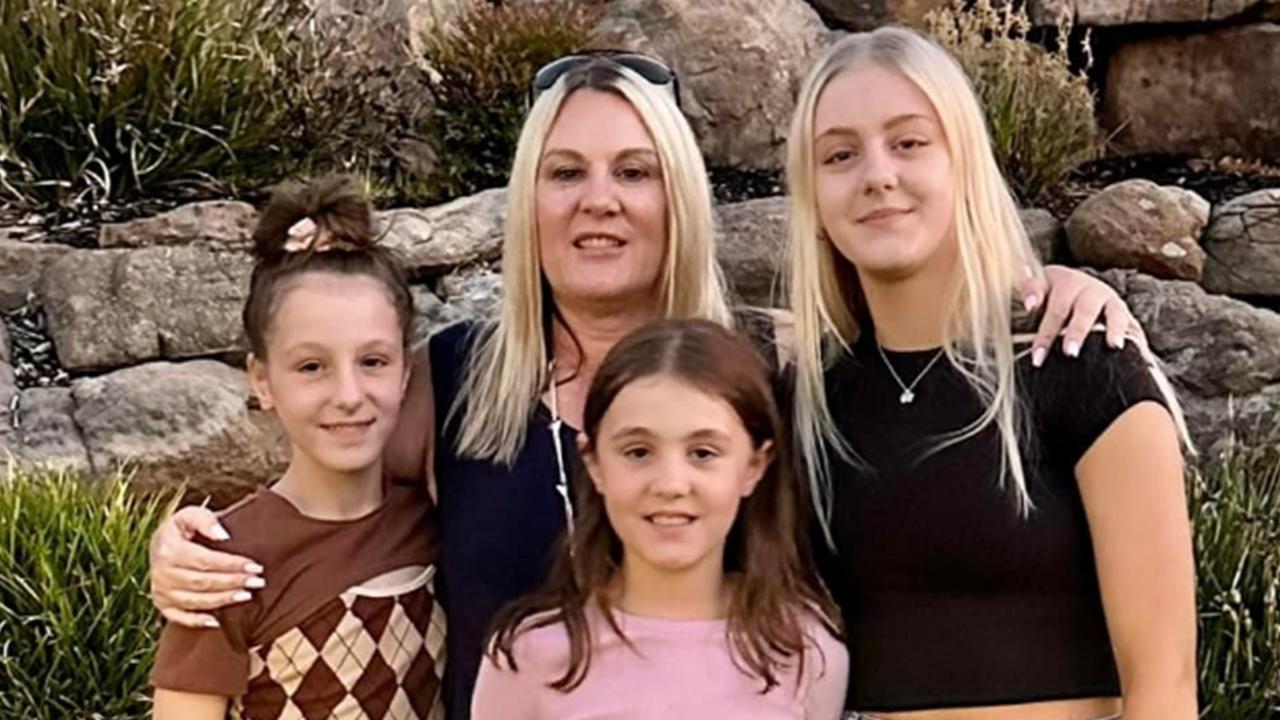‘Most pain I’ve ever experienced’: Young Aussie reveals endometriosis journey
From the age of 11, Chloe knew something “wasn’t quite right” with her body. Now, at 27, she has days where she is in so much pain she can’t even move.
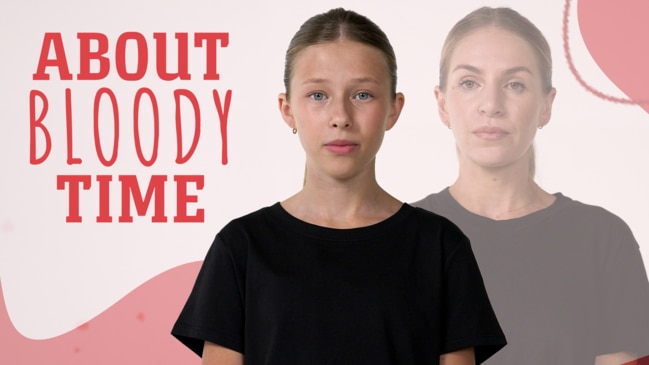
Illness
Don't miss out on the headlines from Illness. Followed categories will be added to My News.
From the age of 11 Chloe Jackson knew that “something wasn’t quite right” with the way her body was functioning.
She was in Year 6 when she got her first period, an experience that was so painful that she knew it couldn’t be normal.
Despite this, it would take nine years of debilitating, heavy periods, having her pain downplayed by doctors and being put on contraceptive pills before finally being officially diagnosed with endometriosis in 2017.
Endometriosis is a condition where tissue similar to that which normally lines the uterus grows in other parts of the body, usually the pelvic region.
It is a chronic condition and while there are treatments available to help patients manage the disease, there is currently no cure.
The breakthrough moment came when Chloe decided she needed a break from the pill after being prescribed it as a teenager four years prior.

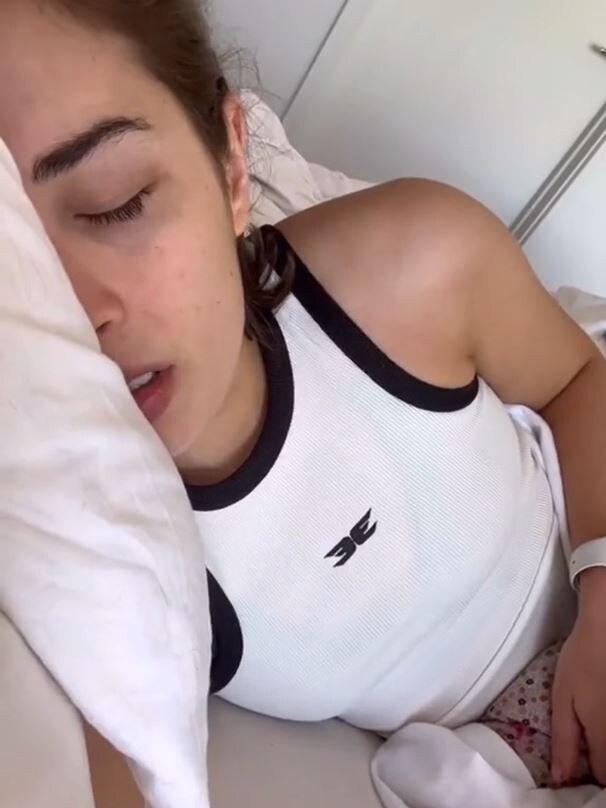
“I went cold turkey from all pills. And while this restarted even more painful periods, doing this was a blessing in disguise, as it pushed me to seek further medical help about my painful periods,” she told news.com.au.
“The GP I was seeing at the time insisted I just had IBS but I pushed for more testing and my endometriosis diagnosis came about.”
The now 27-year-old is open about her endometriosis journey, sharing her honest experience on TikTok in the hopes of helping other women and raising awareness.
‘Couldn’t believe the extent of endometriosis’
Shortly after being diagnosed, Chloe was booked in for her first laparoscopy, surgery used to identify and remove endometriosis tissue.
However, she described the experience as “not the best”, revealing she was instructed after the surgery to start taking hormone injections to keep her period away.
The Adelaide local said these were even “worse” than the pill and she still had no relief from the pain, despite the surgery.
“So, I thought it was time for a second opinion – to my now GP – who is absolutely amazing,” she said.
“She agreed for me to come off the shots and reluctantly I went back on the pill while I waited for another appointment with a gynaecologist/surgeon specialising in endometriosis.”
After her appointment Chloe was booked in for another surgery immediately, though not even a year had passed since her first procedure.
“She couldn’t believe the extent of endometriosis there was, she mentioned that she couldn’t believe the previous surgeon claimed to ‘clear it out’ given how much she found,” she said.
After the surgery, it was recommended that Chloe go back on the pill given the extent of the endometriosis found in her body and other pain she was experiencing relating to her pelvis, bowel and bladder.
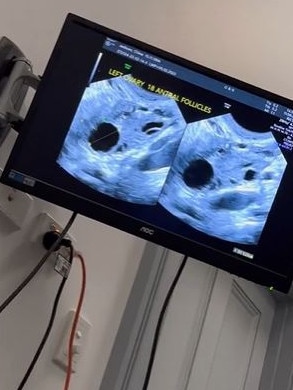
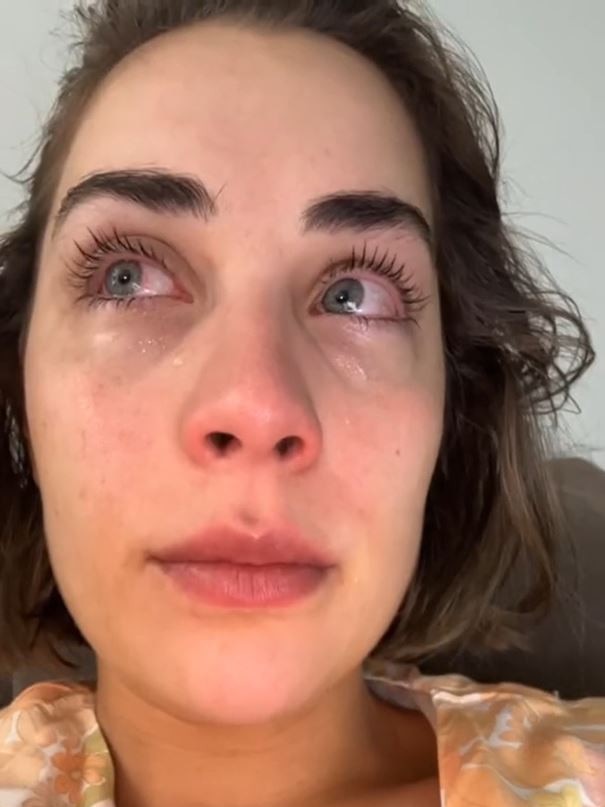
She was also put on three other medications over the years and had to continually up her dosages as her body got used to them, along with seeing a pelvic floor therapist.
This seemed to work at keeping her pain at bay for a few years, until she had to undergo her most recent surgery in 2021.
After that she continued on the pill for a period of time but stopped when she was trying to conceive.
Chloe recently welcomed her first child and one key thing she noticed when telling doctors she had endometriosis was how many still held onto the outdated view that pregnancy would somehow fix her condition.
She said this really “surprised” her, given it is known that – while symptoms may improve for some women during pregnancy – it is certainly not a “cure” for endometriosis.
For Chloe, her experience with doctors and professionals in the endometriosis space has been about 50/50.
“It was incredibly difficult in the beginning and I didn’t feel supported at all – which was incredibly hard as I was seeing a female GP and I thought she’d take the time to understand or relate,” she said.
“However my current GP who I’ve been seeing now for about six years is amazing and as is my gynaecologist/surgeon. They both support me and are always understanding and comforting.”
‘There are days when I can’t get out of bed’
The pain from endometriosis is nothing short of “debilitating”, with the young mum revealing there are days she is in so my pain that she can’t even get out of bed.
“I can’t move. It’s the most painful pain I’ve ever experienced,” she said.
“It’s not just the pain either, it’s challenging mentally, as I feel incapable and beaten by an incurable disease, when I feel like I should be stronger than it.”
There are times Chloe has even “felt embarrassed” when she has been so exhausted she can’t commit to plans or when she has to go to bed while having visitors over because the pain has become too much.
“When I was younger and first diagnosed I’d also feel embarrassed because my period was just so heavy, that at times it would be noticeable because of leakage,” she said.
Before coming pregnant, she felt as if her endometriosis had gotten to the point where she would have to have surgery again, particularly on her bowel area.
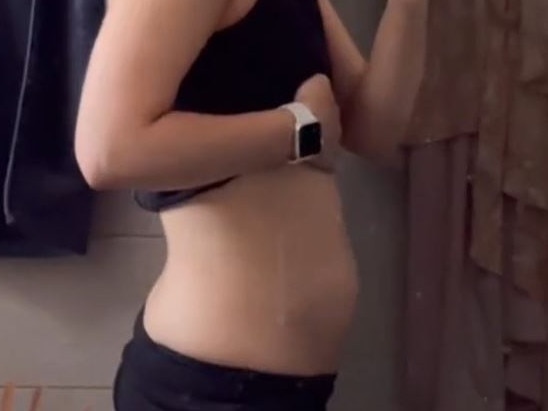
So, while she wasn’t having pain from her reproductive organs during her pregnancy, she was still feeling it in her bowl, along with other pains related to pregnancy, which proved to be “incredibly overwhelming” at times.
One common misconception Chloe often hears is that endometriosis is “just a painful period”.
This is not the case, with the 27-year-old saying endometriosis pains can happen “all the time”, not just when menstruating.
Other common symptoms include bloating, back and leg pain, pain during sex, infertility and fatigue.
Another side effect of endometriosis that Chloe didn’t know about was hair loss.
She became concerned when she noticed “large amounts” of hair falling out during the shower and when brushing in the months following her second surgery.
When she brought this up with her surgeon she explained that it was likely due to the hormones relating the to surgery, explaining it is similar to hair loss after pregnancy and is to do with oestrogen levels.
For other women who think they may have endometriosis but are struggling to get a diagnosis, Chloe’s advice is to not be afraid to get a second or third opinion.
“I’m a believer in that we know our bodies best and if something doesn’t feel right after a diagnosis then it’s okay to go and seek further help,” she said.
“There are so many women who have since come back and told me that after their second opinion they finally got the diagnosis of endometriosis.”
Medicare is failing women and it’s About Bloody Time things changed. Around one million suffer from endometriosis. There is no cure. Help is hard to come by and in rural or regional areas, it’s virtually impossible. We are campaigning for longer, Medicare-funded consultations for endometriosis diagnosis and treatment. Read more about the campaign and sign the petition here
About Bloody Time is an editorial campaign by news.com.au that been developed in collaboration with scientists recommended by the Australian Science Media Centre, and with the support of a grant from the Walkley Foundation’s META Public Interest Journalism fund.
Originally published as ‘Most pain I’ve ever experienced’: Young Aussie reveals endometriosis journey






